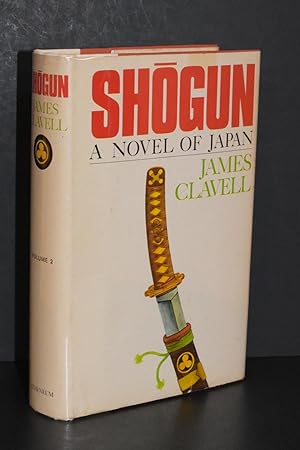

I read James Clavell’s Shogun so you don’t have to. It’s inconsistent, irresponsible, exoticizing, ahistorical, and long-winded. He breathes narrative … He writes in the oldest and grandest tradition that fiction knows”īut in my estimation in 2021, there is little to commend this book. It may be something that cannot be taught or earned. Reviewing the book for The New York Times in 1975, Webster Schott wrote “Clavell has a gift. I reread and live-tweeted my re-read as a stretch goal on my Patreon. However, twenty years later, as a published novelist with a doctorate in Japanese history, my opinion has changed. When I was in high school in the early oughts, I read and enjoyed the novel myself.

Suffice it to say, the novel’s popularity has been exceptionally long-lived. As of this writing, a remake featuring Cosmo Jarvis and Sanada Hiroyuki is in production. It starred Mifune Toshiro and Richard Chamberlain. Five years later, Paramount Television made a TV miniseries adaptation of the novel. Review: Cynical Theories: How Activist Scholarship.For many Americans, particularly of a certain age, Australian novelist James Clavell’s Shogun: A Novel of Japan was their pop culture introduction to the world of the samurai.Review: The Realist Turn: Repositioning Liberalism.

I often found myself leaving the book to read up aspects (a battle, a city, a historic individual, etc). The novel shows a lot of how feudal Japan worked, what the values and ideals of the ruling classes where, and how they viewed the rest of the world. One of the main themes of the book it the interplay of these differences/oppositions, be it more explicitly religious (between various versions of Catholic, Protestantism, Shintoism, and Buddhism), cultural (food, sexual mores, etc), or views of life and death (seppuku plays a prominent role through out the novel). Through the novel, they grow to appreciate and respect each other's strengths and reconceive what they initially saw as barbaric until more understandable differences of worldview. This is especially true early on in the novel, where Blackthorne saw the Japanese as uncaring about life and all too willing to kill, and the Japanese regarded Blackthorne as a barbarian and uncivilized. In particular, by shifting from Blackthorne (the Englishman) to various Japanese characters, one can see how each saw the other.

Clavell switches the point of view through out the book, allowing the reader to get different perspectives on the events and motivations of the characters. The book tells a fictionalized version of the rise of the long ruling Tokugawa shogunate through the eyes (at least in part) of a English pilot who shipwrecks in Japan (and is the first English person to get to Japan-based on the real life account of William Adams). Though only spanning 6 months or so, it truly is epic. James Clavell's classic epic novel Shogun lives up to its reputation. Shōgun: The Epic Novel of Japan by James Clavell


 0 kommentar(er)
0 kommentar(er)
